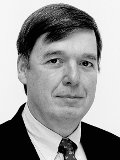GOTO is a vendor independent international software development conference with more that 90 top speaker and 1300 attendees. The conference cover topics such as .Net, Java, Open Source, Agile, Architecture and Design, Web, Cloud, New Languages and Processes
Don Reinertsen, TweetConsultant and Author of "The Principles of Product Development Flow"

Biography: Don Reinertsen
Presentation: TweetThe Tactical and Strategic Art of Economic Models
Lean Manufacturing is heavy on faith-based philosophy and light on hard economic thinking. It would be an expensive mistake to approach product development this way. Product developers must balance multiple competing goals, and the ultimate effectiveness of this balance is measured in economic results. Thinking economically is not just the job of the Finance department, it is a critical skill for everybody. You are at a great disadvantage if you cannot do this. From a strictly practical perspective, your ability to get the attention and respect of management requires that you talk to them in the language that they understand and prefer: economics. Ignore this at your peril.
In this session, Don Reinertsen will discuss some of the lessons he has learned during the last 30 years of helping developers improve the way they manage economic choices in product development.
Presentation: TweetKeynote: Embracing Variability
For a manufacturer, paradise is a world without variability. Such a world would be very hostile for a product developer, because variability is the ever present traveling companion of innovation. Agile software developers already grasp the importance of responding to change, so they’ve accepted that they must function in a stochastic world. But, what does this mean? Is there more to it than just saying, “I will respond to change.” Indeed, there is. We can get surprising insights by viewing product development from the perspective of applied statistics. In this keynote Don Reinertsen will discuss the underlying science that makes modern product development methods work and how to put it to work.
Workshop: The Science of Lean Product Development Tweet
Initial attempts to apply lean methods in product development simply copied behaviors that worked in manufacturing. This doesn’t work — development is a profoundly different domain. Eliminating all variability works in manufacturing; in product development it eliminates all innovation. Second Generation Lean Product Development takes a different, science-based, approach. It relies on understanding mechanisms of action and quantifying tradeoffs. It uses economics, statistics, queueing theory, and concepts from telecommunication network design. This tutorial provides an overview of the key ideas in the bestselling book “The Principles of Product Development Flow: Second Generation Lean Product Development.” This book has been called, “quite simply the most advanced product development book you can buy.” If you want to obtain quick impact from lean methods you must understand these ideas.
Target Audience: Managers and people who control how development is done.
Prequisite: At least 5 years of experience in product development.
Level: Intermediate to Advanced
